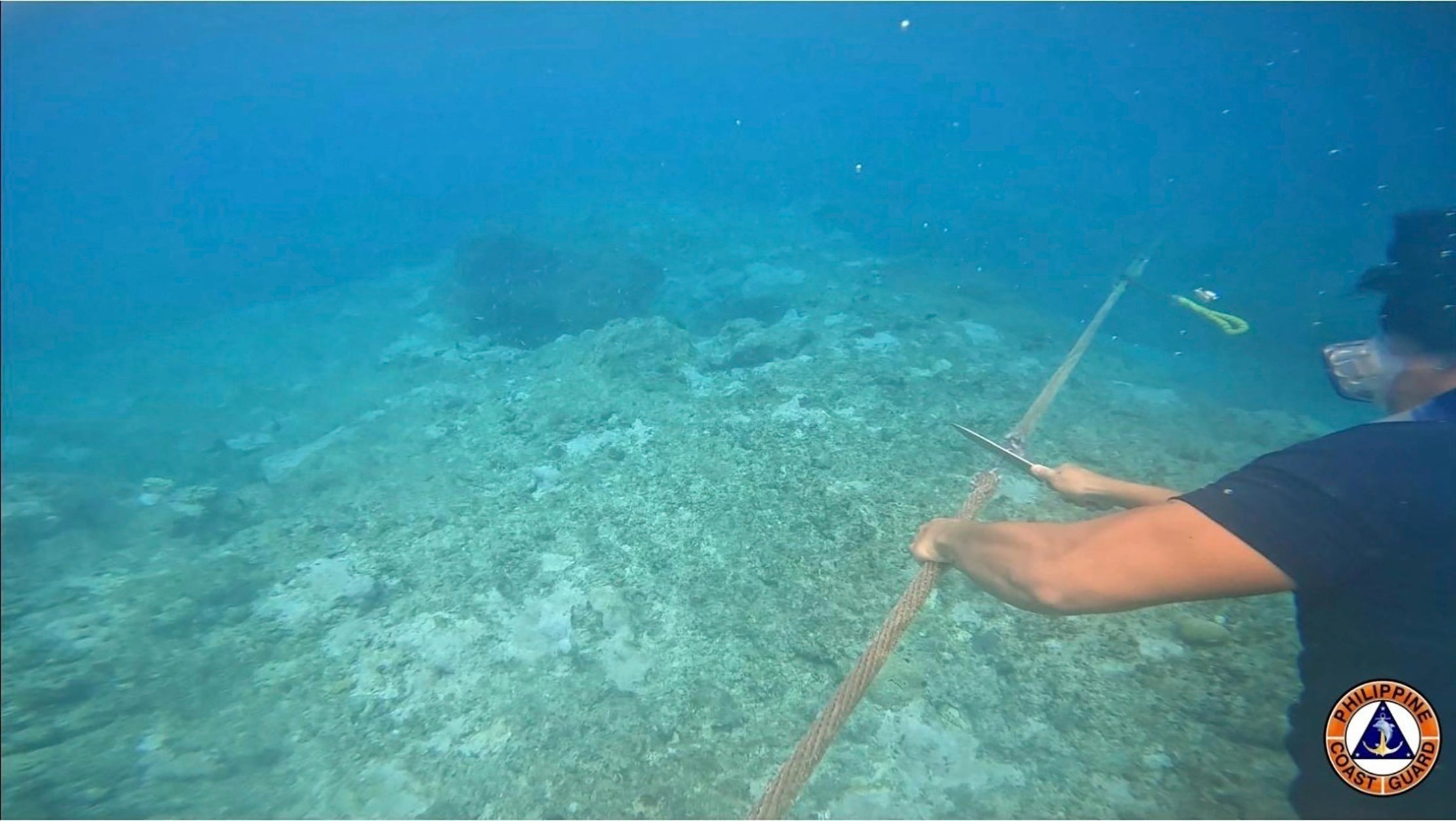Marcos says Philippines is not looking for trouble but will defend waters against Chinese aggression
The Philippine president says his country does not want a confrontation but will staunchly defend its waters after its coast guard removed a floating barrier placed by China at a disputed shoal in the South China Sea

Your support helps us to tell the story
From reproductive rights to climate change to Big Tech, The Independent is on the ground when the story is developing. Whether it's investigating the financials of Elon Musk's pro-Trump PAC or producing our latest documentary, 'The A Word', which shines a light on the American women fighting for reproductive rights, we know how important it is to parse out the facts from the messaging.
At such a critical moment in US history, we need reporters on the ground. Your donation allows us to keep sending journalists to speak to both sides of the story.
The Independent is trusted by Americans across the entire political spectrum. And unlike many other quality news outlets, we choose not to lock Americans out of our reporting and analysis with paywalls. We believe quality journalism should be available to everyone, paid for by those who can afford it.
Your support makes all the difference.The Philippine president said Friday that his country does not want a confrontation but will staunchly defend its waters after its coast guard removed a floating barrier placed by China at a disputed shoal in the South China Sea.
It was the first time President Ferdinand Marcos Jr. has spoken publicly against China's installation of the 300-meter (980-foot) -long barrier at the entrance to Scarborough Shoal which was dismantled at his order.
"We're not looking for trouble but what we’ll do is to continue defending the maritime territory of the Philippines and the rights of our fishermen, who have been fishing in those areas for hundreds of years,” Marcos said in response to a question at a news briefing in southern Surigao del Norte province.
The latest flare-up between China and the Philippines in the South China Sea, one of the world’s busiest trade routes, comes after Marcos decided earlier this year to allow an expansion of the U.S. military presence in the Philippines under a 2014 defense pact. The prospect of more American forces in local military camps in the northern Philippines across from Taiwan and southern China alarmed and infuriated Beijing.
After the Philippine coast guard dismantled the rope and net barrier at the mouth of Scarborough Shoal, Filipino fishing boats entered the shallow lagoon and caught about 164 tons of fish in just one day, Marcos said.
“That's what our fishermen lose, so there should not be a barrier there and it’s clear the area is within the Philippines,” he said. “Our fishermen have been fishing in those areas for hundreds of years so I can’t understand why that has changed."
Chinese Foreign Ministry spokesperson Wang Wenbin said at a news briefing in Beijing on Wednesday that the shoal “is China's inherent territory."
"What the Philippines (has) done is nothing but a farce that entertains itself. China will continue to safeguard the territorial sovereignty and maritime rights and interests of Huangyan Island,” he said, using the Chinese name for Scarborough.
Although Marcos has tried to nurture normal ties with China, the long-simmering territorial disputes have put the Asian neighbors on a potential collision course, with the Philippine leader vowing his country would not yield even “an inch” of territory in the strategic waterway.
Marcos's more confrontational stance contrasts with that of his predecessor, Rodrigo Duterte, who nurtured cozy ties with China and Russia while often criticizing U.S. and Western security policies.
Under Marcos, who took office last year, the Philippines has intensified its efforts to fight China’s increasingly aggressive actions in one of the world’s most hotly contested waters. The Philippine coast guard often invites journalists to join its patrols in an effort to expose what it calls Chinese bullying in the busy waterway.
In addition to China and the Philippines, Vietnam, Malaysia, Brunei and Taiwan are also involved in the territorial conflicts in the South China Sea, which has long been regarded as a potential Asian flashpoint and a delicate fault line in the U.S.-China rivalry in the region.
Washington lays no claim to the sea passageway but U.S. Navy ships and fighter jets have carried out patrols for decades to challenge China’s expansive claims and promote freedom of navigation and overflight. It has warned that it’s obligated to defend the Philippines under a 1951 Mutual Defense Treaty if Filipino forces, ships and aircraft come under attack, including in the South China Sea.